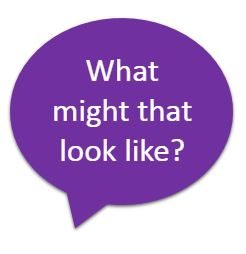| FIRST LEVEL | TECHNOLOGIES | |
| Experiences and Outcomes | Benchmarks | |
| Organiser – Computing Science | Demonstrates an understanding that computers take information as input, process and store that information and output the results. | |
|---|---|---|
| Understanding and analysing computing technology | ||
| I understand how computers process information.
TCH 1-14b |
||
 |
Progression |
|
| I can/am able to | I can/am able to | I can/am able to |
| With support, talk about the purpose of the computer as a tool in everyday life. | Begin to identify how computers take in information i.e. inputs to computer technology such as the keys on a keyboard, a voice to a microphone, or making a choice on a touch screen. | Identify different ways to input information into computers. |
| Explore & talk about how computers take in & give out information. | Begin to identify simple examples of computer outputs e.g. smart speaker answers, words or pictures on a screen or printed page. | Describe a range of different outputs from computer technology |
| Explore & talk about how computers help us find, store & process information. | Talk about or show how computers process & store information e.g. different programs, different drives & storage areas. | Describe how computers help us store & work with information. |

From Education Scotland National Improvement Hub “What digital learning might look like”: “When learning about How a Computer Works learners might: * Explain that input devices are user-controlled and send instructions to the computer’s ‘brain’, or processor, which then leads to a computer controlled output – a short topic around ‘what a computer is’ would be effective in ensuring learners can identify basic components, such as input and output devices and processors * Create content for a wall display, such as a labelled diagram of how popular devices work in terms of input -> process -> output, for example: when you press the volume button on the TV and the TV follows its algorithm to decide it needs to turn the volume up and then the loudspeaker gets louder“ |
||
|
|
||
|
|
||
|
|
||
|
|
||
